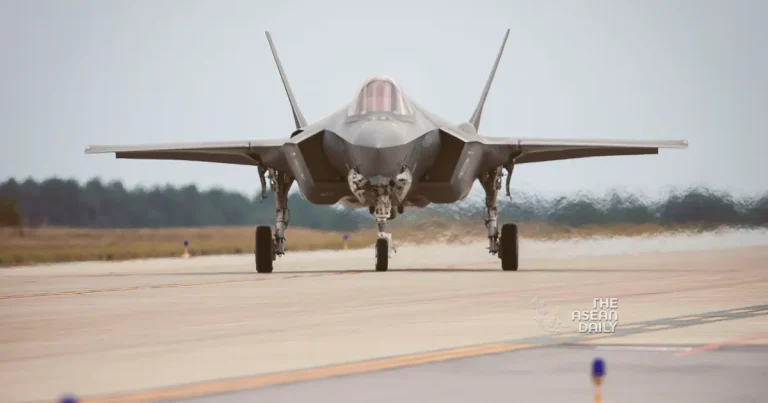1-2-2024 (THE HAGUE) A court in the Netherlands has ordered the country to halt the delivery of F-35 fighter jet parts to Israel. The court stated that there is a “clear risk” that these planes could be involved in violating international humanitarian law. The decision came after human rights organizations argued that the parts contributed to Israel’s violations of the law during its conflicts with Hamas in the Gaza Strip.
The Appeals Court in The Hague sided with the human rights organizations, stating that there is a clear risk of serious violations of humanitarian law of war being committed in the Gaza Strip through the use of Israel’s F-35 fighter planes. The court has ordered the Dutch government to cease the export of F-35 parts to Israel within a week.
The F-35 parts, which are owned by the United States, are stored in a warehouse in the Netherlands and then shipped to various partners, including Israel, under existing export agreements. The District Court in The Hague had previously ruled that supplying the parts was primarily a political decision and that judges should not interfere. However, the appeals court overturned this ruling, emphasizing that the Netherlands must prohibit the export of military goods if there is a clear risk of serious violations of humanitarian law.
The court further criticized Israel’s conduct during its attacks in the Gaza Strip, stating that Israel does not adequately consider the consequences for the civilian population. The attacks have resulted in a disproportionate number of civilian casualties, including thousands of children. The conflict began after Palestinian militant group Hamas launched unprecedented attacks on Israel.
Dutch authorities initially questioned their ability to intervene in the deliveries, as the parts supply is part of a US-run operation that provides components to all F-35 partners. The government argued that if the Netherlands did not supply the parts, Israel could easily obtain them elsewhere. However, the court ruled that the situation had significantly changed since the export licenses were granted in 2016 and that the government must take that into account.
Trade Minister Geoffrey van Leeuwen expressed disappointment with the verdict and stated that the government would appeal to the Supreme Court. In the meantime, the government will comply with the court’s ruling.
Experts in international law have suggested that both parties involved in the conflict are likely committing human rights violations. The International Court of Justice in The Hague has previously ruled that Israel must do everything possible to prevent genocidal acts in Gaza. Human rights groups involved in the appeal welcomed the court’s decision, seeing it as a positive step towards holding Israel accountable for its actions.
The ruling has significant implications for the ongoing conflict between Israel and Palestine, as it restricts the supply of crucial military equipment to Israel. The Netherlands’ decision to halt the delivery of F-35 parts underscores the growing concern over the potential violations of international humanitarian law in the region.
The court’s ruling sends a clear message that states must take responsibility for their arms exports and ensure that they do not contribute to human rights abuses or violations of international law. It highlights the role of the judiciary in holding governments accountable for their actions in the global arms trade.




